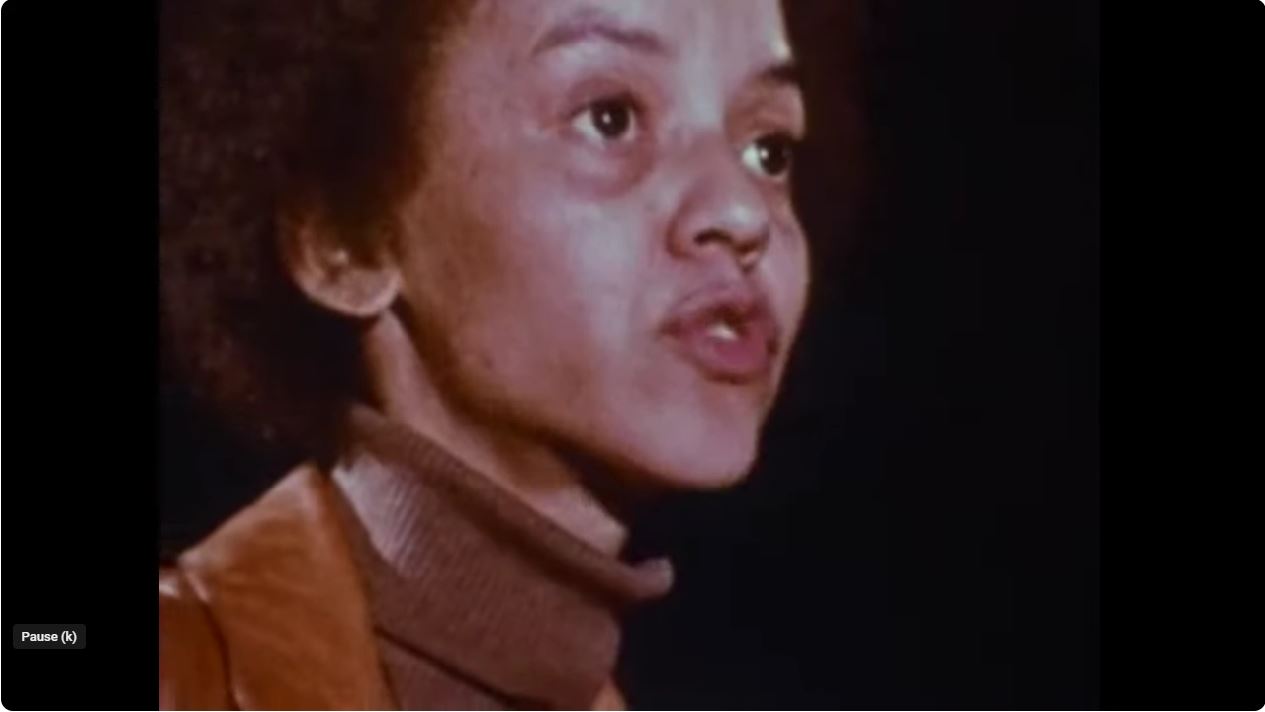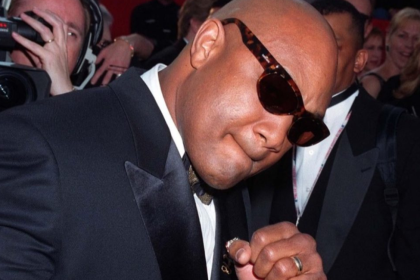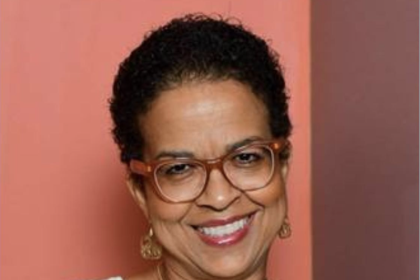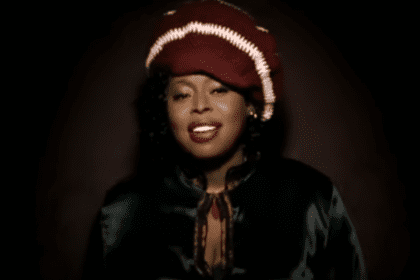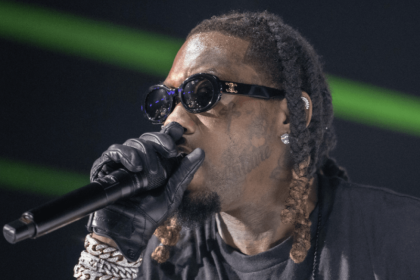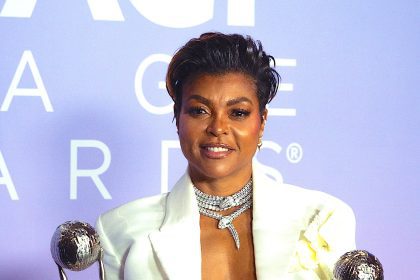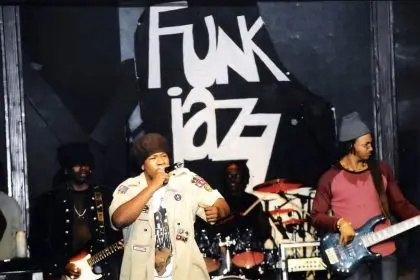In the quiet hours of Dec. 9, 2024, American poetry lost one of its most defiant and distinctive voices. Nikki Giovanni, the “Princess of Black Poetry,” who transformed the landscape of American literature with her unapologetic verse and fierce advocacy for Black consciousness, passed away at 80.
Like a jazz composition that begins with a whisper before building to a crescendo, Giovanni’s influence on American culture started in the crucible of the civil rights movement and expanded into a half-century of literary excellence that would inspire generations. Her words, sharp as switchblades and soft as summer rain, cut through the pretense of polite society while simultaneously healing the wounds of a people’s collective trauma.
Giovanni’s poetic journey paralleled and often intersected with that of Maya Angelou, though their styles and approaches differed markedly. Where Angelou’s work soared with majestic metaphor and sweeping historical narrative, Giovanni’s verse punched with the immediacy of a news bulletin and the intimacy of a lover’s whisper. Both women emerged from the crucible of the Civil Rights era, but Giovanni’s voice carried the particular urgency of the Black Power movement, her words serving as both literature and weapon in the struggle for racial justice.
Among Giovanni’s vast catalogue, two poems stand as towering achievements that every student of American literature should know. “Ego Tripping (there may be a reason why)” showcases Giovanni at her most triumphant and mythological, building a persona that encompasses the grandeur of African civilization and the pride of Black womanhood. “My feet are wings,” she declares, before proceeding to birth the Nile and build the pyramids in a masterwork of empowerment that predated hip-hop’s braggadocio but matched its spirit. The second essential Giovanni poem, “Nikki-Rosa,” presents a more intimate but equally powerful meditation on Black childhood and the way poverty is viewed through white eyes. The poem’s famous closing lines – “Black love is Black wealth” – encapsulate Giovanni’s gift for distilling complex social observations into crystalline truth.

The poet’s relationship with Tupac Shakur represented a profound intergenerational dialogue within Black artistic expression. Their friendship, documented in Giovanni’s “All Eyez on U,” highlighted her ability to recognize and nurture emerging voices while maintaining her own distinct perspective. Shakur saw in Giovanni a revolutionary spirit that matched his own, while she recognized in him the same burning desire to speak truth to power that had driven her own early work. Their conversations, captured in various interviews and writings, revealed a shared understanding of art’s role in social transformation.
Giovanni’s work emerged from and was nurtured by a rich intellectual tradition. She stood on the shoulders of and collaborated with numerous Black thinkers and artists who helped shape her worldview. James Baldwin’s unflinching social criticism influenced her direct approach to addressing racism. Toni Morrison, her editor at Random House early in her career, helped refine her voice while maintaining its revolutionary edge. Angela Davis’s radical political philosophy resonated with Giovanni’s own activism. Amiri Baraka, though they often disagreed, shared her commitment to using poetry as a tool for social change. Bell hook’s feminist theory complemented Giovanni’s exploration of Black womanhood. Cornell West’s philosophical investigations into race and democracy paralleled her own poetic inquiries. Sonia Sanchez, a fellow poet of the Black Arts Movement, shared her commitment to both artistic excellence and political engagement. Manning Marable’s historical analysis informed her understanding of the Black experience. June Jordan’s poetry and activism provided a model for combining art and advocacy. Ta-Nehisi Coates, though of a younger generation, carried forward her tradition of fearless truth-telling.
Throughout her career, Giovanni maintained an unshakeable commitment to both artistic excellence and social justice. Her work at Virginia Tech, where she taught for decades, demonstrated her dedication to nurturing new generations of writers and thinkers. She understood that poetry wasn’t just about beautiful language – it was about truth-telling, about bearing witness, about imagining new possibilities for justice and equality.
The urgency of Giovanni’s early work, born in the fire of the Black Power movement, never dimmed, though it evolved to address new challenges and circumstances. Her later poems continued to engage with contemporary issues while maintaining the sharp wit and verbal dexterity that had always characterized her work. She remained, until the end, a poet who understood that words could be both hammer and healing balm, both weapon and welcome.
Amazing interview with Muhammad Ali.

Giovanni’s influence extends far beyond the realm of poetry. As a cultural critic, essayist, and children’s author, she demonstrated the versatility of Black intellectual tradition. Her children’s books, including the celebrated “Rosa,” helped introduce new generations to the Civil Rights Movement and Black history. Her essays and speeches continued to challenge and inspire, addressing everything from space exploration to hip-hop culture with her characteristic insight and originality.
Like Maya Angelou, Giovanni understood the power of performance, bringing her poems to life through dynamic readings that turned poetry into theater. Both women recognized that the African American oral tradition was as crucial to their work as the written word. However, where Angelou often employed a formal, almost ceremonial delivery, Giovanni’s performances maintained a conversational tone that made complex ideas accessible without sacrificing their power.
The loss of Nikki Giovanni creates a void in American letters that won’t easily be filled. Yet her passing also presents a challenge to young poets and writers: to take up the mantle of literary activism she wore so well. The next generation of poets must now step forward to speak truth to power, to celebrate Black life and culture, to imagine new possibilities for justice and equality. They must do this work with Giovanni’s courage and commitment, but in their own voices, addressing the unique challenges of their time.
To these rising voices, Giovanni’s life offers both inspiration and instruction. She showed that a poet could be both artist and activist, that one could speak with both rage and tenderness, that personal experience could illuminate universal truths. She demonstrated that poetry could be both politically engaged and aesthetically sophisticated, that it could challenge systems of oppression while celebrating the joy and resilience of Black life.
As we bid farewell to this literary giant, we must remember that her work isn’t finished. The struggles she addressed – against racism, sexism, and injustice – continue, requiring new voices to articulate new visions of freedom and equality. Young poets must now step into the space she created, armed with their own experiences and insights, ready to speak their own truths with the same fearlessness that characterized Giovanni’s work.
For those who would follow in her footsteps, the challenge is clear: to create work that matters, that moves people, that changes minds and hearts. The world needs poets who, like Giovanni, aren’t afraid to be both political and personal, who understand that every love poem can be an act of resistance, and every protest song can be a celebration of life. Her legacy demands nothing less than our full commitment to truth, beauty, and justice – expressed through words that, like hers, will stand the test of time.
This story was created using AI technology

